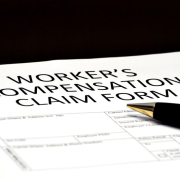Why Is It Important To Understand Grievance Concepts And Who Can File Them?
In workplaces where unions play a pivotal role, the term “grievance” holds significant weight. Yet, for many individuals, especially those not directly involved in union activities, the concept of a grievance may remain somewhat obscure. What exactly is a grievance, and how does it function within the framework of labor relations, particularly in New York, and its legal context?
Defining Grievances
A grievance is a formal complaint or dispute an employee or a group of employees raises against their employer regarding workplace conditions, treatment, or contractual violations. These issues can range from disputes over wages and benefits to concerns about working conditions, safety, disciplinary actions, or the interpretation of collective bargaining agreements.
Who Can File a Grievance?
In unionized workplaces, typically, only union members have the right to file grievances. This is because unions act as representatives of the collective workforce, negotiating for their members. Grievances serve as a mechanism for employees to address perceived injustices or breaches of their collective bargaining rights.
Process of Filing a Grievance
Filing a grievance usually begins with an employee or their union representative submitting a formal written complaint to the employer’s human resources department or designated grievance officer. This document outlines the nature of the grievance, including relevant facts, dates, and any supporting evidence.
Upon receiving the grievance, the employer must adhere to specific timelines and procedures outlined in the collective bargaining agreement or relevant labor laws. This often involves convening meetings between the aggrieved party, their union representative, and representatives from the employer to discuss the issue and explore potential resolutions.
Resolving Grievances
The resolution of a grievance can take various forms depending on the nature of the dispute and the parties involved. The grievance process often includes multiple stages, such as informal discussions, mediation, or arbitration, before reaching a final resolution.
The grievance may proceed to formal arbitration if the parties cannot reach a mutually satisfactory resolution through informal means. In arbitration, an impartial third party, often selected by both the union and the employer, hears arguments from both sides and issues a binding decision.
New York Law and Grievances
Like many other states, New York has laws and regulations governing labor relations and grievance handling. These laws may establish additional rights or procedures for employees and employers operating within the state.
For example, New York’s Taylor Law allows public employees to organize and collectively bargain, subject to certain limitations and regulations. The law also outlines procedures for resolving disputes and grievances through negotiation, mediation, or arbitration.
Legal Guidance
In unionized work environments, grievances are crucial for employees to address workplace issues and enforce their rights under collective bargaining agreements. Understanding the concept of a grievance, who can file one, and how they are resolved is essential for employers and employees to navigate labor relations effectively.
By adhering to established procedures and engaging in good faith negotiations, parties can work towards resolving grievances in a manner that promotes fairness, equity, and a positive working environment for all involved. In New York and beyond, the effective management of grievances contributes to the overall stability and productivity of the workforce.
At the Law Firm of Figeroux & Associates, we understand the complexities involved in addressing grievances in the workplace. Our experienced legal team is committed to offering comprehensive support and guidance to those facing such challenges. Contact us today to schedule a consultation and begin pursuing justice and resolution. Don’t hesitate to reach out by calling 855-768-8845 or visiting www.askthelawyer.us. Take the first step towards asserting your rights and advocating for a workplace free from grievances.












Leave a Reply
Want to join the discussion?Feel free to contribute!